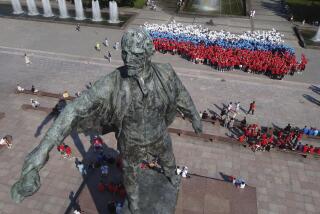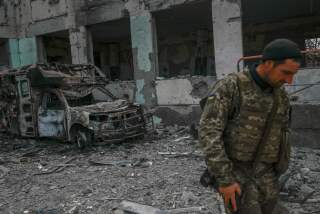Kosovo Move Was Simply the Last Straw for Moscow
- Share via
The unexpected march of a Russian battalion to Pristina cannot be explained solely by strategic calculations. It also has a strong cultural-psychological component.
During the 1990s, Russia has returned to many pre-1917, pre-Communist behaviors. Among them is a tendency to oscillate between extremes, including patience and rebellion and messianism and self-doubt. A decade of U.S.-Russia cooperation conceals the tension over foreign policy that has been growing for years. The war in Kosovo was only the last straw in a haystack of grievances that became unbearable in Moscow.
Having played a significant role in negotiations over Kosovo, Russia expected a major place in the international peacekeeping force. But when Deputy Secretary of State Strobe Talbott came to Moscow, he explained that NATO had already made a decision and Russia had the choice of going along or being left out. This was more than Russian patience could bear.
The dash of the battalion to Kosovo is not principally about a military revolt against Boris N. Yeltsin and his complicity with NATO. The military initiative represented a much broader consensus about the need for a strong reaction. The military action united almost everyone, from Communists, to die-hard nationalists, to pro-market and pro-democracy moderates.
Americans are unlikely to fully understand the logic of Russian thinking or behavior, which does not accord with their concept of rationality. But this confrontation over an airfield in Kosovo is not principally driven by rational calculations. As the 19th-century Russian poet Fyodor Tyutchev observed:
One cannot understand Russia Nor measure her by a common yardstick
She has a special character
In Russia one must simply believe.
NATO decision-makers would be well-advised to examine carefully the cultural roots of Russian behavior. Such an examination leads us to predict that once the rebellion--manifested in the dash of the battalion--is behind, Moscow is apt to revert to a much more patient and complacent stance.
More to Read
Sign up for Essential California
The most important California stories and recommendations in your inbox every morning.
You may occasionally receive promotional content from the Los Angeles Times.













